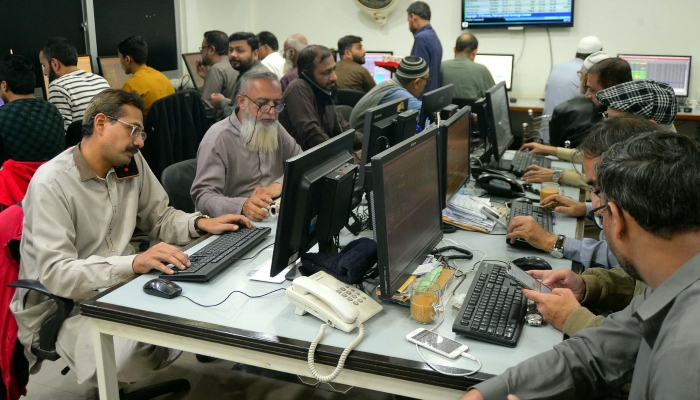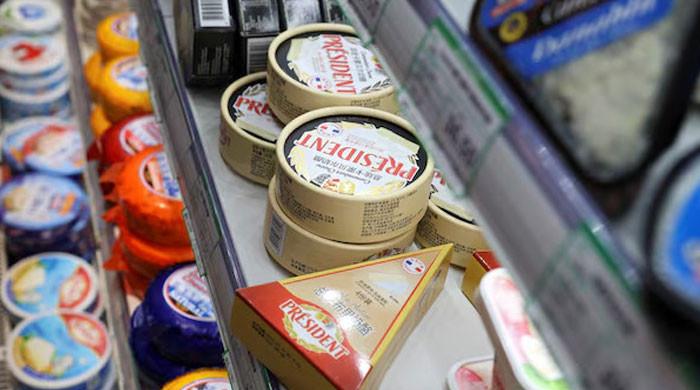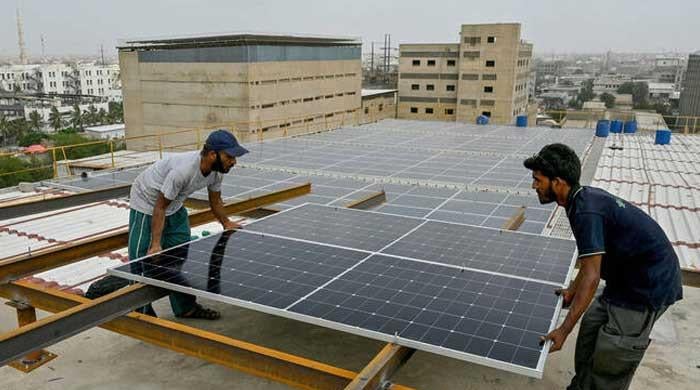PSX extends gains as rate cut expectations lift sentiment
Buying also spurred by hopes of robust dividend announcements in the ongoing result season, says analyst
January 24, 2025

The capital market continued its upward trajectory on Friday, supported by growing expectations of a rate cut in the upcoming Monetary Policy Committee (MPC) meeting and foreign buying, particularly in the cement sector.
Positive developments, including a billion-dollar loan from Middle Eastern banks and optimism surrounding corporate earnings season, also contributed to the market's recovery.
The Pakistan Stock Exchange’s (PSX) benchmark KSE-100 Index gained 842.69 points or 0.74% to close at 114,880.48 after hitting an intraday high of 115,779.05 points.
"The expectations of a rate cut on Monday have been heightened after the drop in yields yesterday. This, along with a new billion-dollar loan from Middle Eastern banks and buying by foreigners, especially in the cement sector, are helping the market recover," said Ismail Iqbal Securities CEO Ahfaz Mustafa.
He added that the ongoing result season has also spurred buying activity as investors anticipate dividend announcements.
On Wednesday, the government raised Rs326 billion through a Treasury bill (T-bill) auction, although it fell short of the Rs350 billion target. Yields on T-bills declined by 20-41 basis points, reinforcing expectations of a 100-basis-point cut in the SBP's policy rate, scheduled to be announced on Monday, January 27.
Inflation in Pakistan is expected to continue its downward trend, with January's Consumer Price Index (CPI) potentially dropping to 2.8%—the lowest level since November 2015. According to JS Global, this decline is largely due to a high base effect despite a modest month-on-month increase of 0.6%.
The average inflation for the first seven months of FY25 is projected at 6.7%, significantly lower than the 28.7% recorded in the same period last year.
Meanwhile, Pakistan’s foreign exchange reserves held by the State Bank of Pakistan (SBP) decreased by $276 million to $11.449 billion in the week ending January 17, attributed to external debt repayments. The reserves remain sufficient to cover over two months of imports.
However, pressure on reserves was eased last week when the United Arab Emirates confirmed the rollover of $2 billion in deposits for another year.
On Thursday, Prime Minister Shehbaz Sharif welcomed the World Bank’s launch of its multi-billion-dollar Country Partnership Framework for Pakistan, which spans FY26 to FY35. He termed it a “timely intervention” to address Pakistan’s economic, poverty, and climate challenges. This initiative is expected to support vital development projects across the country.
Additionally, the UAE’s decision to roll over deposits and the government’s efforts to secure short-term loans from Middle Eastern banks have provided much-needed fiscal relief.
Finance Minister Muhammad Aurangzeb recently confirmed a $1 billion loan agreement with two Middle Eastern institutions at interest rates of 6%-7%. The loans were short-term — or up to one year.
Stocks had also recovered on Thursday, with the benchmark KSE-100 index gaining 594 points, reflecting investor optimism about further monetary easing this month. The index closed at 114,037.79 points, up 0.52% from the previous session’s close of 113,443.43 points.
The SBP’s upcoming monetary policy announcement remains a focal point for market participants. Investors are optimistic about further monetary easing, supported by falling inflation and declining yields.
The MPC meeting will be hold on Monday, January 27. Later, on the same day, Governor SBP Jameel Ahmad will announce the Monetary Policy decision at a press.









